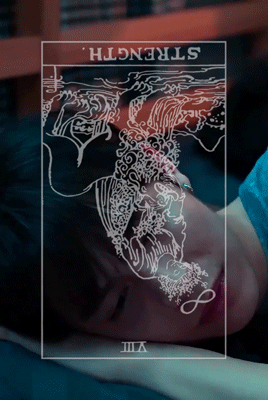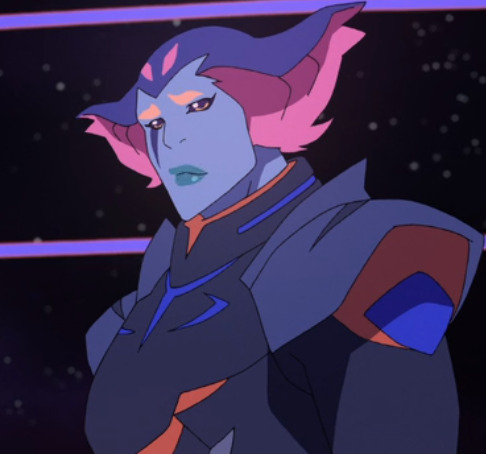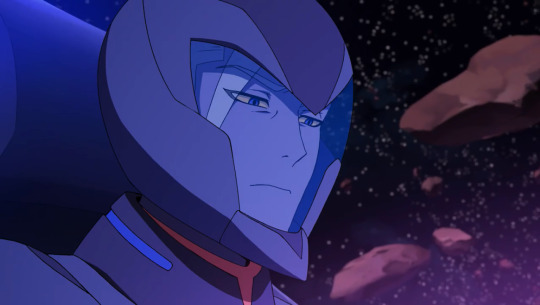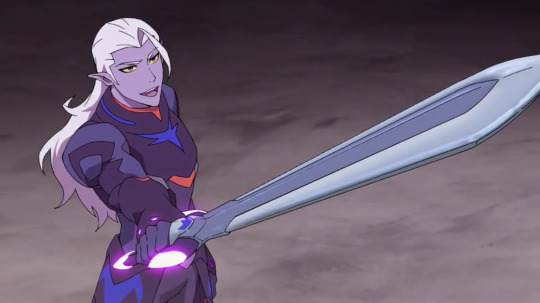#also do I have to say the lion here absolutely represents ray? because it does
Text




Only Friends (2023) x Major Arcana
Sand → Strength
The Strength card, when reversed, demonstrates how uncertainty and a lack of self-confidence make one vulnerable, heartbroken, and incapable of comprehending their own value. The Strength card, being upright, reveals that said value and one's inner force do not come from brashness or indifference, but from resilience and the kindness within one's heart — it's through determination and love that the lion is tamed.
#only friends#only friends the series#onlyfriendsedit#oftsedit#ofts#first kanaphan#ofts sand#sandray#this one and the mew one were like the inspiration for all these#because the cards are completely for them like no doubt whatsoever in my mind#also do I have to say the lion here absolutely represents ray? because it does#disclaimer: the strength card has multiple meanings - this is only one of them#I wish I had enough development from other characters#I could try doing a gifset for cheum but even then I would have to stretch her character so hard to fit a card...#oftstarot
136 notes
·
View notes
Note
The only problem I have with a Lotor redemption arc is that redemption arcs only work if the character realizes what they’ve done is wrong is actively seeking atonement for their wrongdoings. Lotor does not seem to be seeking any kind of atonement for what he’s done to the Paladins and to Narti. Unless he has a huge turnaround this season, I don’t know how the writers will try to pull of a Lotor redemption arc.
Really? Because the problem I have with a redemption arc for Lotor is I think that with the words “redemption arc” people often do kind of a great disservice to the complexity of writing, the importance of context, and I feel like you’re failing to take into account numerous factors in the writing here!
However you personally feel about Lotor’s actions, that’s not up for me to dictate, but it’s pretty unmistakable that Lotor is presented as an antihero, not a villain. By which I mean, the writers have very obviously attached to Lotor all of the same symbols and gestures that they attached to the heroes: Lotor is young, visually he resembles the protagonists far more than any of the other villains we’ve seen, he’s associated- in fact, nearly drowning in the color blue, which, while we do have blue-tone villains (Hira and her associates in the alternate universe) they’re the only exception, and Lotor exists in the default universe in which blue is the color associated with all of our benevolent parties.
Value wise it is repeated and demonstrated that Lotor, whether or not his actions unfailingly align with them, values mercy, values compassion, values honesty. It is also pretty unmistakable, given Lotor’s tenure as emperor pro tem shows us his utterly failing to enforce his father’s empire and freely acquiescing, for no reason or gain, the only coalition planet he ever took (Puig) he’s also pretty clearly sabotaging the empire. His only interest in expanding it is soliciting the Puigians to “the new empire”- he’s pulling people away from Zarkon.
Lotor is, and from the start, unapologetically the head of his own faction. He and his allies were trying to live off the empire like a parasite until they were in the place to actually dispose of them- that didn’t work out.
As far as atonement: Your proposal here is that the only, only way a non-heroic character can become a hero is if they 1. outline everything they have ever done wrong, 2. regret everything, and 3. beg forgiveness from the heroes or some other form of higher power.
In which case, yeah, I really don’t think Lotor’s ever going to do that. In fact, I can think of numerous “redemptions” that looked absolutely nothing like that. That feels like a very rigid and suffocating framework that would, unless written very carefully and for a very specific narrow kind of character, be very out-of-character for exactly the sort of character who would, y’know, actually warrant one of those arcs.
Let’s talk about Lotor and his actions, shall we? You mention against the paladins, and against Narti, so, I’ll talk about those.
Lotor and the Generals attack the paladins several times- s3e2, s3e3, and s3e4. I will omit s3e6, because in this case, it was premeditated on the paladins’ part, and the generals were acting in self-defense. (I also wonder if you hold these same actions against the generals, as they were obviously aware and willing collaborators the entire time)
In s3e4, we are revealed to Lotor’s master plan at this point: he’s aspiring to get his hands on the Sincline comet, but only Voltron can enter the dimensionally becalmed ship carrying it. Zethrid states they tried to have other pilots get it out before, which... ended badly.

She also is a little sad remembering they (presumably) got people vaporized. Oops!
Why does Lotor want the comet? Again, because Lotor’s attempting to gain massive advantages that will allow him and his comparatively tiny group of conspirators, especially his inner circle, to challenge the empire and win. Personally, I think Lotor’s also keenly aware of the symbol Voltron represents to the universe- and is fully aware that constructing something on part with Voltron itself, out of the same materials, will allow him to challenge them on a grand level and command the attention of the universe- but that’s pretty much just an aside.
So Lotor wants the comet to use it against Zarkon. Considering that as soon as Lotor’s revealed to be building any significant forces, Zarkon drops a “kill on sight” order for Lotor to the entire empire, this tells us that simply, being able to fight Zarkon is a matter of life and death for Lotor. He will either be killed by his father, or he will gain the means to defeat, and thus, escape Zarkon.
I would like to reiterate that. From Lotor’s perspective, if he does not get this comet, he will be murdered by his abusive father.
With that in mind, Lotor looks at the comet.
He needs Voltron for the comet- well, now, he doesn’t have Voltron on speed dial. Obvious choice? Attack a coalition planet. Because Voltron’s trying to make allies, they’ll thus try to defend these allies. Voltron can either show up to defend them, giving him what he wants, or be a no-show, which denies him access to Voltron, but makes them look very bad in the coalitions’ eyes, which Lotor can then make his own offer to Puig, hop to the next planet, and repeat until Voltron makes an appearance.
During this occupation, Puig is merely a pawn on the board. We notice that Lotor, again, with his policy of mercy, leaves the occupation in the hands of Acxa, his right hand, who explicitly orders the rest of the generals to kill no one. This reinforces Lotor’s values, that while mercy is considered a shame worthy of execution to the empire, among Lotor’s generals, the most obviously merciful and inclined to restraint is the one offered the highest position.
So, Lotor takes Puig, makes his offer, and Voltron shows up to defend the planet, springing his trap.
Here, Lotor wants to confirm first and foremost that Voltron is intact. That established, he leaves, content, and pulls all of his forces out of Puig. Lotor stops fighting and attacking the paladins as soon as he’s seen what he wants, all five Lions.
Casualties of this incident: no lasting damage to the Lions, scared paladins, several injured Puigians, no fatalities except if any of the destroyed galra fighters had living occupants rather than drones- which is on the paladins, not Lotor.
Our heroes, who are unambiguously heroes, are more likely to have killed someone in that altercation than Lotor and his generals were.
Keith hangs a tracker on Lotor’s flagship, and, thus, chooses to pursue him, which leads to the next encounter, s3e3. Realizing the paladins are pursuing them, Lotor makes a decision to test them a second time- using his own personal fighter. After a few altercations- no lasting damage to the Lions, and all paladins summarily shook up but unharmed- Lotor is displeased- jeez, he can’t risk these people getting his comet for him, they’re suspiciously incompetent. They can’t even combine into Voltron, which means they wouldn’t get into the rift.
Because of that, he chooses to set the trap at Thayserix. It’s worth noting this trap hinges entirely on Keith’s willingness to keep chasing Lotor- unlike at Puig, he has no hostage, and his only bait is himself. He works to keep the paladins’ attention on him, and thus, off the cruiser and away from his generals. Again, we see Lotor actually does consider the losses of his subordinates as significant, unlike Zarkon, and more like the paladins.
Lotor has his game of merry chase, scares the hell out of the paladins, and again, chases them around/sets them up in explosions. Again, we see no lasting damage to the Lions, and no real damage to the paladins except emotionally. Allura freeze rays him, and, conceding defeat verbally, Lotor limps off- and the generals call in two imperial fleets as a smokescreen to cover their escape. Voltron is formed, and makes short work of them.
Casualties of this incident: Scared paladins, Lotor’s pride, no fatalities or injuries on heroes’ side. Two imperial fleets destroyed.
Again, our heroes did more damage than Lotor did. You could make an argue here that Lotor and the Generals were both quite callous at the losses caused by throwing those two commanders, likely not conspirators to Lotor’s “new empire”, to Voltron like a juicy bone to a guard dog, but if they weren’t conspirators, that’d imply as imperial commanders they were in the general business of attacking and subjugating other sentient races throughout the universe, so, it’s really up to you how that pans out morally.
So, this works out, as Lotor says himself: this is the very opportunity he’s been waiting for. The paladins can form Voltron, and they have a modicum of competence between them. While he’s prepared to profit from them potentially not making it, he’d really rather have the comet, and, so, it’s time to send them after his pride- so, like ringing a desk bell for service, he goes and turns on the beacon.
Voltron answers, a merry jaunt in another reality occurs, the sanctity of brains are threatened, computers are unplugged, Sven appears to assuage that Shiro-shaped hole in the fans’ broken hearts.
Two of the generals (unidentified, but not Lotor) shoot at and attack the castle before seizing the comet and making off with it.
Casualties of this incident: The paladins’ dignity, the Sincline comet.
This may not impress you much but let’s consider the casualties of Sendak’s raid on the Castle:
Heavy internal injuries and unresponsive state that required medical intervention via healing pod- Lance, electrical torture- Shiro, destruction of the castle’s crystal, Rover, most of the buildings in the Arusian village [immediate]...
Destruction of King Alfor’s AI, Shiro being actively, maliciously baited into a panic attack, Allura having a sobbing breakdown [did not emerge until Crystal Venom]
But sure- the fact that Lotor breaks out the kid gloves in a way that no other villain we’ve seen does dealing with the paladins is largely more a consequence of his minimal-engagement, overly frugal tactics and disinterest in fighting long battles, he still picked on the paladins several times, and that’s fair. Maybe you’re mad about that.
Lotor at this point has no good reason to regret it. He literally hasn’t even been given the opportunity to get to know the paladins, and I think you’re really kidding yourself if you assume any of them would respond positively to Zarkon’s son waltzing up and extending an olive branch that he inevitably won’t have the support of the empire to actually enforce- not that he could even do that, anyway, because he’d be executed as a traitor very quickly if he were caught negotiating with Voltron.
In s3e1 Lotor talks about how “the masses” are easily swayed- them cheering his name in an arena once doesn’t mean that if he suddenly makes a highly controversial decision that basically demands they chose their loyalty to Zarkon or their five seconds of fondness towards him, when many of them were willing to back Throk’s coup against Lotor- yeah, Lotor’s not going to win.
From Lotor’s perspective, either he gets the comet or Zarkon kills him, and probably kills the four at-risk minority women he’s kinda trying to keep around and in power. At bare minimum the Generals would likely lose all of their standing since Zarkon certainly wouldn’t let “mere half-breeds” operate at that status.
He uses Voltron, Voltron gets him exactly what he wants and needs, and for their troubles, they were shook up and scared, but again, no lasting harm, physically or emotionally. The closest he came was scaring the hell out of Allura in s3e3 which he was largely unaware of her fear outside of where it affected her piloting and commented positively when Allura started turning the tables on him, acknowledging her competence and learning curve.
Even if Lotor really got to know the paladins, he wouldn’t feel that bad about it. After all, these guys face danger far greater than his threats all the time. He did what he had to in order to survive, they did what they had to in order to fight him. Fair is fair.
As far as Narti...
Lotor killed Narti and left her body on the cruiser. There’s no other way to slice that.
He did so because the only possible explanation for what had happened that he was aware of was that Narti had somehow betrayed him to his father- which is a big deal because, again, that tip-off led to Zarkon ordering the entire empire to murder Lotor on sight.
Narti did not do so voluntarily. Lotor had less than five seconds to consider the situation, did not know if Narti would start attacking them once she was discovered, and had no way of knowing what had transpired between Narti and Haggar. We, the nearly-omniscient audience, watched it happen and have, scientifically speaking, no fucking clue what happened.
Lotor has to make a decision right then and there if he’s going to leave Narti behind to the dubious mercy of the empire, take her with and risk being hunted down even further or killed and having the comet ships taken from him.
Immediately afterwards he is nearly unresponsive, uncharacteristically snappy when he does speak, crosses multiple lines he never has before onscreen with his generals, and makes an entire vocabulary of deeply upset, highly agitated and anxious faces. When Acxa attacks him, Lotor’s reflexes are uncharacteristically so slow that he actually doesn’t even turn his body to face Acxa before she shoots him. This is someone who was able to, from a standstill and with a sheathed weapon, run Narti through and pull his weapon out of her body in seconds. There’s no way he didn’t have the time to cut Acxa down.
Everything about this scene tells us Lotor didn’t want to do that, that the only possible thing that could motivate him to do that was the situation adding up to the undeniable conclusion that Narti had betrayed him first, and the only counter-evidence we have passed silently behind his back some twenty minutes or more before he even had an inkling something was wrong.
But okay- Narti’s dead, we’re all heartbroken. Maybe it’d make us feel better if Lotor was just, taken down a peg in a way that made it clear this was an awful thing.
Maybe like... completely losing the loyalty of his generals, something he can’t even bring himself to hold against them because he clearly regrets everything about Narti and the only reason he’s not trying to make amends is because as far as he knows it was necessary, and there’s nothing else he could’ve done.
Or just getting shot in the back and having to hurt himself to escape the situation.
Or just, the complete revelation that his dream of having a weapon that could challenge Voltron just nicely went up in smoke because all four of the people he trusted to pilot it with him are now decisively inaccessible, killing what the show has repeatedly emphasized is the greatest advantage for him- the support of a knowing, caring team.

Because I don’t really know how to respond to the implication Lotor doesn’t already regret the hell out of what he did to Narti. He’s borderline catatonic for the entire rest of the season afterwards and only seems to recover, coincidentally as soon as he’s contacting Voltron- people he’s not sure he can trust.
And our very first scene with Lotor tells us when he’s not sure he can trust people?

He lies through his goddamn teeth the entire time.
So, the only actually content seeming Lotor we’ve seen since Narti’s death is in the one context where he’s most likely to be faking every second.
So... even as superficial and character-inappropriate as I think your prescribed schedule for a reform arc is, Lotor arguably qualifies, in that pretty much the one genuinely nasty thing he’s done besides his comprehensive screwing over of Throk is also the one thing he seems to feel so awful about that it actively impacted his ability to defend or take care of himself- since, y’know, the guy who spent all of s3 and the first two episodes of s4 carefully taking it easy and protecting himself suddenly made five different incredibly self-destructive decisions in the span of two episodes effective immediately after losing Narti:
1. flung self and Zethrid at an experimental portal and burnt irreplaceable resources doing so, 2. dislocated own shoulders, 3. repeatedly tried to sleep while flying spaceship, 4. flung self into a sun, 5. went towards an area immediately after hearing a fatal explosion was likely to occur there
Like I mean if you don’t think Lotor doesn’t obviously regret killing Narti then I don’t. know what more to tell you.
101 notes
·
View notes
Photo

The Coward (1965, India)
With the Apu trilogy (1955-1959), Satyajit Ray became a darling of cinema academics and critics with his portrayal of one young man’s coming-of-age. By the mid-1960s after Charulata (1964), international attention to Ray’s films waned. Not that his movies declined in quality, but Ray appeared to be moving away from characters, settings, and narratives that might be considered “exotic” by Westerners. The situations, as in any film by Satyajit Ray, remain timeless. The Coward – also known by its original Bengali title, Kapurush – features a suffering artist character often found in 1950s and ‘60s Ray films. But in an interesting development, the artist’s creative soul is not what propels The Coward – instead, it is a litany of decisions rooted in the past, the temptations of the present.
Amitabha Roy’s (Soumitra Chatterjee) car has broken down somewhere in the Indian countryside, in or around Darjeeling. Amitabha, a screenwriter has been traveling across the country to gather material for a developing screenplay. Also at the mechanic’s garage is a tea plantation owner, Bimal Gupta (Haradhan Bandopadhyay), who offers a room to Amitabha for a night. The two men arrive at the estate, where Bimal introduces his wife, Karuna (Madhabi Mukherjee), to his visitor. Amitabha is stunned into silence – the woman only a few feet away from him is his ex-girlfriend. Introductions are warranted, pleasantries are exchanged, a meal is offered. During this time, Amitabha and Karuna’s respective body language suppose they are in an old lover’s daze – he has never resolved his feelings for Karuna; Karuna’s feelings are best not spoiled – yet they never tip Bimal off to their prior history. She was willing to disrespect her parents’ wishes to be with him; familial pressure and fear of commitment resulted in the breakup. When together, Bimal and Karuna seem bored, as if having little new or anything of interest to say to each other.
As usual, Ray is also the film’s writer, adapting The Coward from author Premendra Mitra’s story Janaiko Kapuruser Kahini. “The coward” of this film is Amitabha; the act of cowardice informing the film’s title is Amitabha’s inability to surrender to his heart’s desire when he and Karuna were lovers, rather than run from the familial, material, and social consequences that might have occurred by marrying her – so the conventional thinking goes. That act of cowardice – some readers might think the film’s title and that designation to be harsh on Amitabha, but opinions have varied wildly – underlines all of the conflict appearing here. Perhaps it is a character trait in Amitabha’s behavior over the time they have been together; there simply is not enough information or a conclusive flashback to confirm all of this speculation.
Will Amitabha and Karuna rekindle their feelings for each other after a few or several years? When he has the chance to speak to her individually, is Amitabha being inappropriate and is she even caring to listen to him? Is Bimal – written by Ray as bored, boring, and fond of alcohol – going to eavesdrop or arrive at the worst possible time, setting up the most awkward situation imaginable?
The answers to all of these questions might surprise first-time viewers, as Karuna displays a peculiar aloofness the moment she is alone with Amitabha for the first time. Those who have not finished the film should skip this paragraph, the quote in between, and the paragraph after that. More questions – this time asked by Amitabha himself – perhaps inspire that distance. He asks if she is happy, if she still has feelings for him. Coming from Amitabha, these inquiry reveals his insecurity and willingness to start again. Karuna does respond about whether or not she is happy many hours after that first encounter – in broad daylight, with Amitabha listening on the opposite side of a dirt road where a convoy of trucks is about to pass. She warns him about judging a person after only knowing them for less than a day. Absolutely. She claims to have changed over time. No complaints there.
Perhaps I didn’t want to be happy.
What? Is Karuna deflecting Amitabha’s question to the cacophony of the incoming trucks? Or is she referencing Amitabha’s conception of happiness between the two of them, having long rejected his definition, and has pursued a “happiness” that is hers and no one else’s? Of all of her responses, this is the one that has been bedeviling me since completing The Coward (consider: Karuna’s stated dependence on sleeping pills and her reason for her presence in the film’s closing seconds). Either way – or if I have missed the point of that moment completely – Karuna has pursued happiness for herself and not to be confined by her family or Amitabha. Though her reasons are written too abstrusely for my tastes (or maybe this is because my experience with love is not sufficient to understand this film), this is a progressive female character for cinema – something transcending when this film was released and where it comes from.
With all this talk of cowardice, it might be enlightening to read Ray’s own words about The Coward. The film, he writes, glimpses into, “a certain type of cowardice and a certain selfishness, which seem to be concomitants of modern middle-class sophistication. The stress of modern living, and the uncertainty of getting a foothold and retaining it, are important causes of these complexes.“ Amitabha, a screenwriter, probably lives on a deadline-heavy schedule – forcing him to interpret large amounts of information and human interaction and translating those experiences on paper. Successes are temporary in show business, with another deadline and more bills to pay always on the horizon. It makes me wonder how Ray felt about the character of Amitabha – did he identify with him or pity him? The Coward, to me, does not feel like a condemnation but I’m not discounting the fact that someone could articulate a compelling case for that interpretation.
Regarding Karuna, she is the final character in an unofficial Satyajit Ray trilogy featuring women staking their own claims of self-assertion despite the disapproval of traditional families and other men. That trilogy includes: The Big City (1963), Charulata (1964), and The Coward (1965). Madhabi Mukherjee is the actress playing all of the female leads in that unofficial trilogy. More emotionally distant than the eponymous Charulata (as of the writing of this piece, I have not seen The Big City), Mukherjee’s Karuna is more understated than that previous role but – for reasons having to do with the maddeningly loose ends that Ray leaves this film with – her subtle expressions sometimes seem to be contradicting the tone of voice she or someone else is using. Also starring opposite her from Charulata is co-star Soumitra Chatterjee who – like Mukherjee – can modulate the film’s tone with the slightest change in facial language and bodily posture. This film does not contain his best performance either. These are two damned talented actors, but outside of the flashback scenes, I did not feel for either until the closing minutes of the film’s brief seventy-four-minute runtime.
Cinematographer Soumendu Roy (an assistant cameraperson to cinematographer Subrata Mitra on 1955′s Pather Panchali; Roy became Satyajit Ray’s go-to cinematographer after Mitra developed eye problems in the early-mid 1960s) has a fascinating opening tracking shot, but little else of interest afterwards outside of the scenes where Amitabha, Karuna, and Bimal are taking a break from driving a car into the countryside. The Coward, from a compositional standpoint, is more pedestrian in its imagery than most Ray works.
Outside of its debut at the 1965 Venice International Film Festival (nominated for the Golden Lion), The Coward never registered anywhere else. It does not appear to have been given a North American theatrical release (distribution rights appear to be with Janus Films/the Criterion Collection, but the film has never been released on home media in the region); two European theatrical releases are listed on IMDb (France in 1994, Portugal in 2014). In India, The Coward represented the first half of a double bill with Ray’s comedy The Holy Man (1965). Legal prints – let alone illegal versions with subtitles – might be difficult to come by (The Coward made its North American television premiere on Turner Classic Movies in the early hours of September 11, 2017).
As part of its initiative to help restore Satyajit Ray films for future generations, the Academy of Motion Picture Arts and Sciences (AMPAS) and the University of California, Santa Cruz (UCSC) have collaborated to preserve films like The Coward – itself restored in 2005. Ray’s remaining unrestored films are housed at UCSC and will they will be re-presented to cinephiles when those prints are ready. I myself am just getting started on Ray’s filmography, having also seen his Apu trilogy, The Music Room (1958), Charulata, and Nayak (1966). If The Coward is any indication, the wisdom and humanity found in Ray’s direction and writing matters not on the setting or the specificity of his characters’ lives before we are introduced to them. Instead, it is his willingness to explore human emptiness and an individual’s desire to evaluate and rectify the past.
My rating: 7/10
^ Based on my personal imdb rating. My interpretation of that ratings system can be found here.
#The Coward#Kapurush#Satyajit Ray#Soumitra Chatterjee#Madhabi Mukherjee#Haradhan Bandopadhyay#Premendra Mitra#Soumendu Roy#TCM#My Movie Odyssey
3 notes
·
View notes